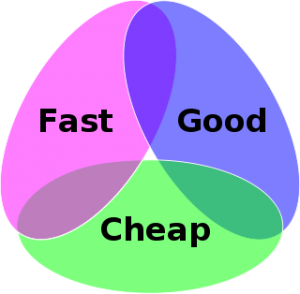I have been reading a lot lately about leadership; leadership in corporations, military leaders and leadership in our day-to-day life. Leadership has always been an important topic for me, maybe because of my military background and also because I have held several leadership positions in the recruiting industry over the past 15 years. Leadership and management are two terms that often get lumped together, confused and used inter-changeably. They are however, very, very different but also, equally, very important to the running of a recruiting business. I am not going to bore you with the dictionary definitions – you can look those up yourself. To me, Leadership is the ability to INSPIRE the people around you with your vision and passion. Management, on the other hand, is the execution, monitoring, measuring and validation of the metrics you need to create and grow a successful business. While management is important I am not going to talk too much about that today but will concentrate o leadership.
In the recruiting business I see three different levels or types of leaders and leadership. I will explain each in turn.
The first is the Visionary. In an owner run company this will undoubtedly be the owner/founder. In a corporation this person should also reside at the top of the structure. This is the person whose passion and inspiration sets the direction and ethos for the organization. They must see the big picture (with an eye on details) and look to the horizon for future growth and business opportunities. The Visionary must see what the organization can become and create the strategy, structure and conditions that will allow for that success. They must be flexible and able adjust their path as conditions warrant, without taking their eye off the prize. Their gift is being able to recognize and challenge the potential of their people to do greater things. In a word they must INSPIRE.
The second role is the Implementer. This is typically the Branch, Group, Practice or Team Leader/Manager and requires someone who can both Lead and Manage effectively, at the tactical level. Their purpose is to implement the vision of the organization by harnessing the strengths of their team in executing the recruiting process. This individual must be willing to get involved one-on-one with their team to ensure they are doing the job effectively, measuring and validating the activities. Leadership is a key here as the Implementer must lead by example through demonstrating competence in the business and inspiring their team in the pursuit of their duties. They must be available to do regular training, coaching, ride-alongs to clients and resolve inter-personal, client and candidate issues. The Implementer must understand their business and their particular market niche so they act quickly on opportunities hire effectively and generally try to maximize the performance of their team.
The third and final role is what I call the Operator. The Operator is the Recruiter/Account Manager who actually drives the business through the recruiting process. Operators understand their market niche, know what they need to do to be successful and have a personal drive and sense of urgency to exceed their personal goals and targets. Successful Operators understand their activities, metrics and ratios and use those as the day-to-day drivers of their success. Successful Operators, with the right personality and ethics, can lead other team members towards success, strictly by example. They are often willing to mentor and coach team members because they understand that a stronger team helps them in the long run. While everyone cannot be a Superstar biller, the whole team can be successful Operators if they buy into the vision, the overall direction and are willing to play their part in the organization’s success.
Put these three types of leaders together effectively and your organization will scale new heights of success.
